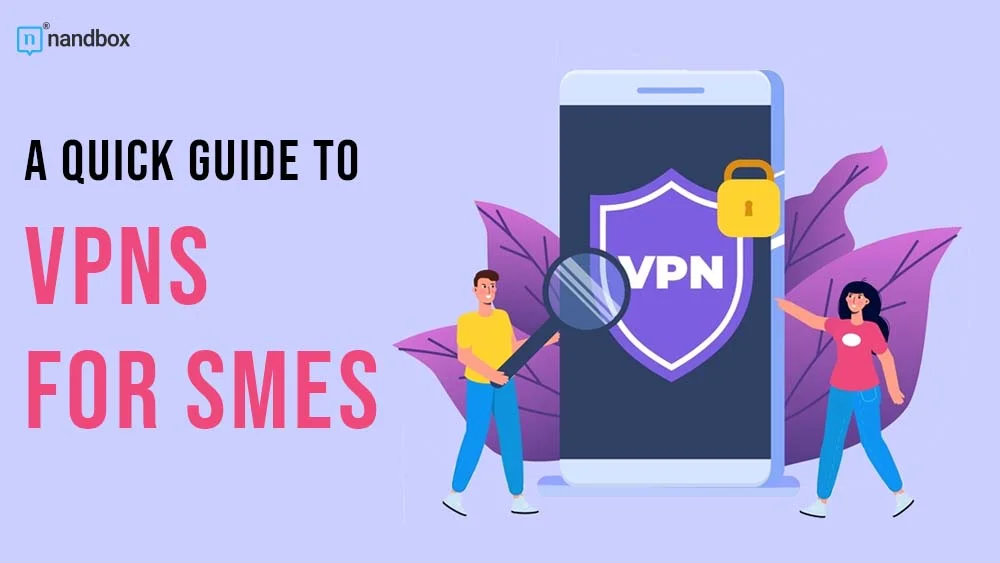There’s no doubt that small and medium enterprises (SMEs) are the backbone of the economy. According to recent SME studies, this sector is responsible for nearly 68% of all private labor employment. Additionally, SMEs make up the majority of exporters in Canada despite numbering just two million nationwide. Despite SMEs’ many benefits, they are also among the most vulnerable to closure. Today, one of the leading causes of SME failure is cost-related challenges.
In today’s digital age, this includes losses incurred following cybersecurity issues. Mastercard reports that cybercrime has risen exponentially following the mass digitalization adopted following the pandemic. Between 2020 and 2023 alone, there has been a 238% spike in cyberattacks. Among Canadian businesses, around 40% reported a cyberattack of some sort. Unfortunately, the same reports reveal that SMEs and younger businesses are unlikely to survive such an attack without severe consequences. As such, cybercrime experts strongly recommend that all companies, regardless of size, adopt well-rounded cybersecurity plans. This includes using a virtual private network (VPN). But just what is a VPN for SME? And how can SMEs with more modest budgets make it work?
How VPNs work

To understand how VPNs work, it’s important to discuss data first. In every online transaction, whether you’re supplying personal details or not, your virtual data gets shared. More specifically, your Internet Protocol (IP) address. An IP address is an automatically generated unique identifying number each Internet-connected device receives. Devices can often share the same IP address as a router. Through an IP address, devices can send and receive data online.
As its name implies, IP addresses can reveal a physical geolocation down to city, zip code, and area code. This can be risky because malicious entities can hack your IP address and use it to piece together your personal information. Once they have this, exploiting your online movements, such as virtual bank transfers, is relatively easy. A compromised IP address can lead to data breaches or DDOS attacks for businesses. In both cases, online business traffic can be halted, and sensitive information can be leaked. To reduce the risk, consider browsing through a VPN server list, which allows you to select a server in a different location and mask your real IP address.
This is where VPNs come in. With this mechanism, your IP address is changed to a different geolocation, which can be miles away or from an entirely different country. At the same time, a VPN scrambles your data, making it harder for hackers to get through this encryption. Some experts estimate that even cybercriminals using supercomputers must dedicate several years to decrypting this information successfully. At this point, the data is likely outdated and worthless. In line with this service, the global market value for safe VPNs has risen over the last several years to exceed $56.53 billion (US$44.33 billion) and is expected to grow by almost 18% until 2030.
VPN for SME: Can SMEs afford VPNs
If there’s one cybersecurity barrier that many SMEs face, it’s affordability. Most SMEs are slim operations, with a recent poll of Canadian businesses noting that many have as few as four employees. As a result, SMEs tend to cut corners where possible, including in their online activities. At most, an SME may invest their resources into more profitable online endeavors, such as social media or e-commerce. In reality, choosing not to arm themselves with a VPN for SME only makes them more susceptible to costly cyberattacks. The Globe and Mail estimates that the average hack costs businesses $5.64 million (US$4.13 million), which most SMEs cannot recover from.
Meanwhile, VPN plans can cost as little as $8 (US$5.85) a month for business packages. On top of this, SMEs can find a secure VPN for reduced prices during regularly scheduled sales from providers. To illustrate, NordVPN offers coupon codes that can be applied to 3-month and 20-month plans for savings of up to 45%. On top of this, VPNs can also go on sale during popular shopping holidays, like Black Friday and Cyber Monday. Of course, for SMEs that are still on the fence, there are also 14-day trials. No fees will be charged during this time, so there’s no need to worry about hidden charges while still testing things out.
VPN considerations
As a whole, VPNs are highly beneficial, as explained above. That said, there are still several considerations an SME must keep in mind before choosing any plan or provider. Chief among these is that business VPNs require a larger bandwidth. Because VPNs scramble data, they make extra “traffic stops” that can slow connectivity. Since time is money, this can result in reduced productivity, missed customer opportunities, and slower operations. If a reliable VPN supports P2P traffic, then there is an even bigger need for a smooth and uninterrupted Internet connection. To prevent this, SMEs must check how much bandwidth they have and if they need to upgrade it.
Apart from this, SMEs need to think of their current staff, including those outside of IT. Realistically, though, not many SMEs have a dedicated IT staff anyway. Although most VPNs are downloaded and turned on and off via an app, this may still be intimidating for some workers. With this in mind, SMEs may need to invest in training these employees on using a VPN for SME.



